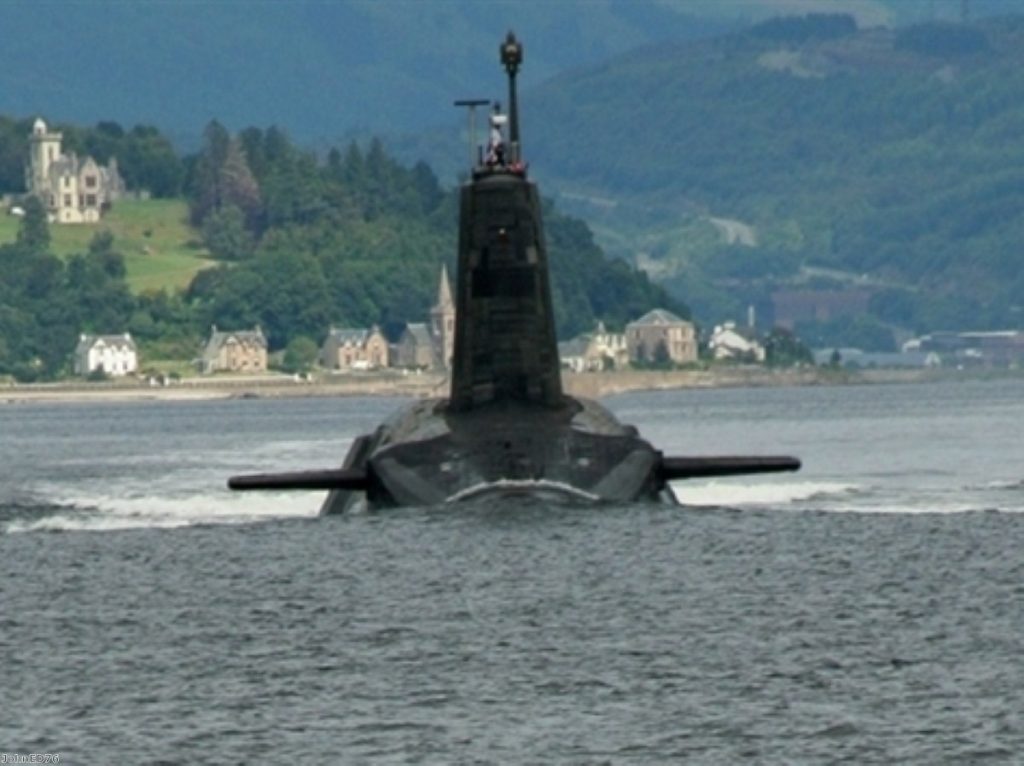Coalition descends into confusion over Trident
By Alex Stevenson Follow @alex__stevenson and Charles MaggsFollow @charlesmaggs
The coalition has endured a day of bickering and confusion over its position on Britain's nuclear deterrent, after Nick Clegg warned ministers were "jumping the gun" over Trident.
The deputy prime minister's intervention triggered a day of briefing and counter-briefing in which aides close to Clegg and David Cameron laid out very different assessments of the status of the coalition's Trident review.
Defence secretary Philip Hammond's announcement that £350 million is being spent on design and development work triggered the row.


Lib Dems quickly moved to undermine Hammond by pointing out that the £350 million sum was part of a £3 billion package announced in May 2011 and not 'new money'.
"The coalition agreement is crystal clear. It stands. It will not be changed. It will not be undermined," the deputy prime minister said this morning.
"The final decision on the replacement of Trident will not be taken until 2016, however much other people may not like it."
Downing Street explained that the coalition has put off the final decision on whether to go ahead with the construction phase for the Trident replacement until 2016, after the next general election.
Ministers agreed in the spring of 2011 that a Liberal Democrat review into Trident would take place at the same time looking at ways to reduce its cost, No 10 said. The prime minister's spokesperson made clear the coalition government is "committed to an at-sea nuclear deterrent".
After question-marks began to emerge, the Liberal Democrats clarified that their review was looking at both alternative systems and postures to like-for-like replacement and continuous-at-sea deterrence.
This afternoon Downing Street said the Liberal Democrats' review was a party-based activity which was not directly linked to the government.
Aides close to Clegg pointed out that the Lib Dem review was also a "government review" as it is being conducted by civil servants based in the Cabinet Office.
The row may not have escalated so quickly – or become so confusing – had it not been for the confidence with which Hammond outlined his support for Trident earlier.
"Our continuous submarine-based nuclear deterrent is the ultimate safeguard of our national security and the government is committed to maintaining it, both now and in the future," he said.
"This latest expenditure for the next generation of nuclear-armed submarines is an investment in UK security and the British economy, sustaining high-quality jobs and vital skills."
The Liberal Democrat review will sit "side-by-side" with ongoing design and development work, the prime minister's spokesperson said. It will contribute to the final decision in 2016 about whether there are any cheaper ways of providing the at-sea deterrent but is set to report later this year or early next year.
That will allow the Liberal Democrats to begin a "debate" on the issue going into the next general election.
Clegg made clear the Lib Dem position earlier. He said: "The idea of a like-for-like entirely unchanged replacement of Trident is basically saying we will spend billions and billions and billions of pounds on a nuclear missile system designed with the sole strategic purpose of flattening Moscow at the press of a button."
Britain's future status as a nuclear power was one of three issues on which the coalition's two parties 'agreed to disagree' after the general election. The others were marriage tax allowances and tuition fees.









